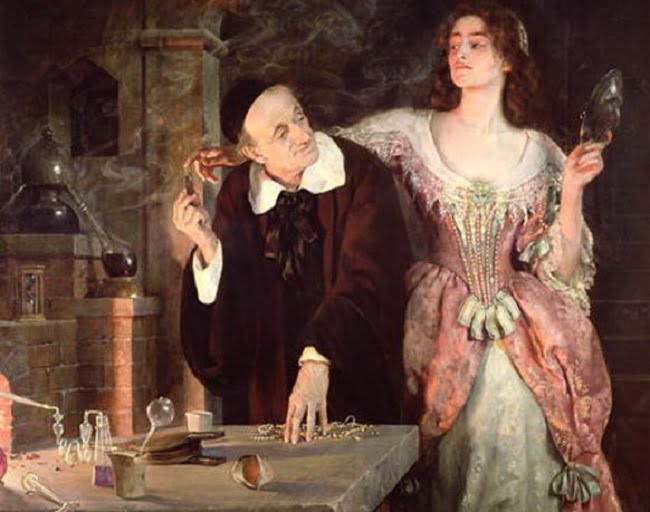
Introduction
Nathaniel Hawthorne, an American novelist and short story writer, is renowned for his deep exploration of human nature and the intricacies of the human mind. One of his most intriguing short stories, “The Birthmark,” delves into the themes of perfection, science, and the fatal flaw of human imperfection. In this article, we will delve into the world of Nathaniel Hawthorne’s “The Birthmark,” examining its themes, symbolism, moral dilemmas, and the impact it has had on literature and society.
Nathaniel Hawthorne’s “The Birthmark”
“The Birthmark” revolves around Aylmer, a brilliant scientist, and his beautiful wife, Georgiana, who possesses a small, crimson birthmark on her cheek. Although Aylmer loves his wife deeply, he becomes obsessed with the birthmark, viewing it as a symbol of her imperfection. Driven by the belief that he can perfect her, Aylmer embarks on a dangerous scientific experiment to remove the birthmark, oblivious to the potential consequences.
The story takes a dark turn as Aylmer’s obsession consumes him, and the fate of Georgiana hangs in the balance. Through this haunting tale, Hawthorne raises profound questions about the pursuit of perfection and the dangers of tampering with nature.
Themes Explored in “The Birthmark”
Obsession with Perfection
A central theme in “The Birthmark” is Aylmer’s obsession with perfection. He is unable to see the beauty in his wife because of the small birthmark on her cheek, and this drives him to the brink of madness. Hawthorne delves into the psychology of obsession, portraying how the relentless pursuit of perfection can lead to tragic consequences.
The Pursuit of Scientific Knowledge
Aylmer’s character represents the archetype of a scientist consumed by the desire for knowledge and power. He believes that science can conquer all imperfections, including the birthmark on Georgiana’s face. However, the story serves as a cautionary tale, warning against the unchecked pursuit of scientific advancement without considering the ethical implications.
The Imperfection of Humanity
Through the birthmark itself, Hawthorne highlights the imperfections inherent in humanity. The mark symbolizes the flaws and vulnerabilities that make individuals unique. By attempting to remove the birthmark, Aylmer symbolically tries to erase a fundamental aspect of his wife’s humanity.
Symbolism in “The Birthmark”
The Birthmark Itself
The birthmark is a potent symbol in the story, representing both Georgiana’s mortality and her individuality. Its crimson color signifies the essence of life and human mortality, reminding readers of the impermanence of existence.
The Laboratory and Scientific Experiments
Aylmer’s laboratory serves as a metaphor for the boundaries that separate the natural from the artificial. It also represents the extent to which scientists may push the limits of human knowledge, often at the expense of ethical considerations.
Nature and the Elixir of Life
In “The Birthmark,” nature is depicted as the ultimate force that resists human attempts to control it. Aylmer’s quest to remove the birthmark mirrors humanity’s pursuit of an elixir of life or immortality, which often leads to unforeseen consequences.
Moral and Ethical Dilemmas
Aylmer’s experiment raises significant moral and ethical questions. As both a scientist and Georgiana’s husband, he faces conflicting roles and responsibilities. The story forces readers to ponder the boundaries between scientific progress and ethical boundaries.
Georgiana, too, must grapple with her willingness to undergo the experiment. Her desire to be perfect in her husband’s eyes highlights the societal pressure placed on women to conform to unrealistic beauty standards.
The experiment’s outcome serves as a stark reminder of the potential consequences of tampering with the natural order.
Impact and Legacy of “The Birthmark”
Upon its initial publication, “The Birthmark” garnered mixed reactions from readers and critics alike. Some praised Hawthorne’s profound exploration of human nature, while others were unsettled by the dark themes presented in the story. Over time, however, “The Birthmark” has become a revered piece of literature, inspiring countless discussions on themes of obsession, beauty, and the pursuit of perfection.
The Relevance of “The Birthmark” Today
In the modern world, “The Birthmark” remains relevant in discussions about genetic engineering and the growing obsession with physical appearance. As technology advances, the ethical questions raised in the story become even more pertinent. Moreover, societal pressures and unrealistic beauty standards persist, emphasizing the need to embrace imperfections and celebrate individuality.
Conclusion
Nathaniel Hawthorne’s “The Birthmark” continues to captivate readers with its exploration of obsession, imperfection, and the dangers of playing god. As a cautionary tale, it reminds us of the importance of embracing our humanity and the beauty of our uniqueness. The story’s enduring impact serves as a testament to Hawthorne’s literary prowess and his ability to delve into the depths of the human psyche.
FAQs
- Is “The Birthmark” based on real events?
- “The Birthmark” is a work of fiction and not based on real events. It is purely a product of Nathaniel Hawthorne’s imagination.
- What inspired Nathaniel Hawthorne to write “The Birthmark”?
- The inspiration behind “The Birthmark” remains a subject of speculation. However, Hawthorne’s fascination with human psychology and the dark side of human nature likely played a significant role.
- Are there any other notable works by Nathaniel Hawthorne?
- Yes, Hawthorne is famous for his novel “The Scarlet Letter” and other notable works like “The House of the Seven Gables” and “The Minister’s Black Veil.”
- Does “The Birthmark” have a specific moral lesson?
- “The Birthmark” offers various moral lessons, including the dangers of obsession, the complexity of human nature, and the importance of accepting imperfections.
- How long is “The Birthmark”?
- “The Birthmark” is a short story and can be read in one sitting. It spans approximately 25 pages, depending on the edition.



